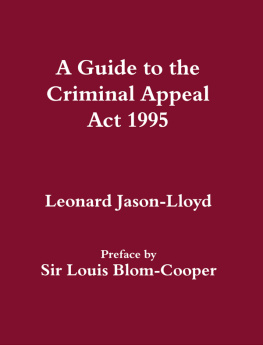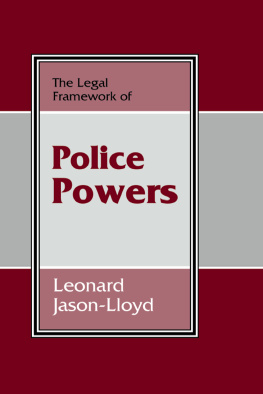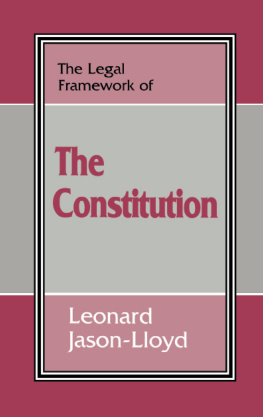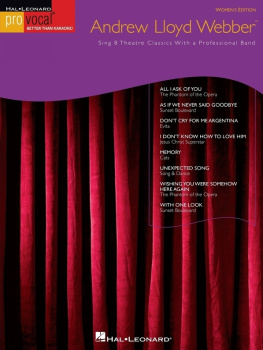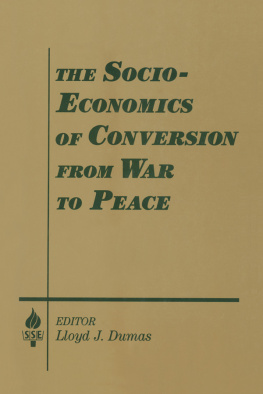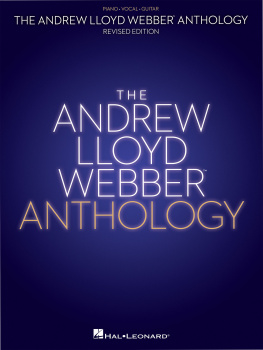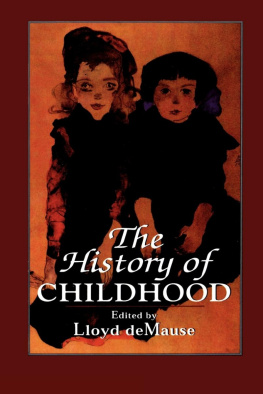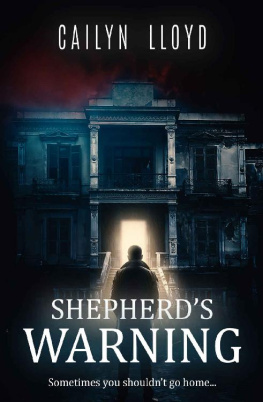First published in Great Britain 1997 by
FRANK CASS & CO. LTD.
Published 2016 by Routledge
2 Park Square, Milton Park, Abingdon, Oxon OX14 4RN
711 Third Avenue, New York, NY 10017 USA
Routledge is an imprint of the Taylor & Francis Group, an informa business
Transferred to Digital Printing 2004
Copyright 1997 Taylor & Francis
British Library Cataloguing in Publication Data
Jason-Lloyd, Leonard
A guide to the Criminal Appeal Act 1995
1. Great Britain. Criminal Appeal Act 1995 2. Criminal
procedure England 3. Appellate procedure England
I. Title
344.2078
Library of Congress Cataloging-in-Publication Data
A catalog record of this book is available from the Library of Congress.
All rights reserved. No part of this publication may be reproduced in any form or by any means, electronic, mechanical, photocopying, recording or otherwise, without the prior permission of the publisher.
Typeset by Vitaset, Paddock Wood, Kent
ISBN 978-0-714-64791-3 (hbk)
ISBN 978-0-714-64285-7 (pbk)
ISBN 978-1-315-03789-9 (eISBN)
The spate of miscarriages of justice that, in large part, prompted the setting up of the Royal Commission on Criminal Justice (which reported in July 1993, Cm 2263) inevitably called into question the systems ability not merely to prevent such warts on the face of criminal justice but also to put in place, in the appellate and extra-curial procedures, the means of redressing the injustices of jury verdicts. Hence the emergence of the Criminal Appeal Act 1995. Mr Jason-Lloyd provides a useful service to busy practitioners engaged in the criminal appeal process with a ready-reckoner as to what the changes in the new regime are. It is a guide, not a commentary or critique. One hopes, however, that his efforts will not stop here. He is well equipped to give further assistance to those who administer the criminal appeal system.
Two, quite disparate issues strike me as significant. First, there is the legislatures determination to put an end to the ceaselessly disputed criteria for allowing an appeal against conviction. The second matter relates to the constitutional displacement of the power of the Home Secretary to refer cases back to the Court of Appeal, in favour of an independent review body.
In the first draft of the Criminal Appeal Bill of 1907 the Court of Criminal Appeal was to be empowered to quash a conviction on any ground upon which the verdict of a jury might be set aside in a civil case - in other words, that the verdict was such as no jury on the evidence (and properly instructed by the trial judge) could reasonably return: a kind of criminal Wednesbury rule. During the Bills parliamentary passage, Mr F.E. Smith (later Lord Birkenhead, Lord Chancellor) urged that the power was much too limited. He moved an amendment which would have required the court to quash a conviction where the verdict of guilty was, in the opinion of the court, under all the circumstances of the case unsafe or unsatisfactory. The Attorney-General of the day, Sir John Walton, expressed sympathy with the spirit of the amendment, but thought that the words were too loose and obscure. Section 4(1) of the 1907
Act was ultimately agreed to without debate. It provided that an appeal shall be allowed if the court thought that the verdict of the jury should be set aside on the ground that it is unreasonable or cannot be supported having regard to the evidence, or of a wrong decision of any question of law or that on any ground there was a miscarriage of justice.
That formula stood for 60 years, although on occasion the Court of Criminal Appeal acted as though the test of unsafe or unsatisfactory was the proper one. The Report of the Interdepartmental Committee on the Court of Criminal Appeal in 1965 (the Donovan Committee, Cmnd. 2755) recommended adoption of F.E. Smiths proposal that the new Court of Appeal (Criminal Division) should be given an express power to allow an appeal where, upon consideration of the whole of the evidence, it comes to the conclusion that the verdict is unsafe or unsatisfactory. Parliament agreed. Under the Criminal Appeal Act 1968 that formula was accepted. It has proved, over the last 30 years, to be no less unsatisfactory among the judiciary. As Mr Jason-Lloyd explains, during the second reference of the Birmingham Six to the Court of Appeal, the Court took the view that the words did not have different meanings, but provided alternative terminology. Section 2(1) of the Criminal Appeal Act 1995 now obligingly removes the superfluity of two words to convey a single meaning. Parliament has opted for unsafe simpliciter. Was it right to go for the single, simple Anglo-Saxon word safe, instead of the Latinism of satisfactory? It may be logical to say that a conviction, the safety of which is in doubt, is like an unsafe ladder - one whose condition must be regarded as unsatisfactory. But the ladder is unsafe if its physical condition is demonstrably defective. The safety of the conviction relates to a noumenon (a value judgment) and not a phenomenon (a discernible factual situation). By the use of the word safe, safe from what? Safe from the indignation and reproaches of the convicted person and those campaigning on his behalf? Or ought we to have the sense of the verdict being secure (or impregnable) against any critical forensic analysis by academics, armchair critics, logical or factual in their criticisms? What about dipping into the Thesaurus and coming up with analogues, such as unassailable, water-tight, certain, well-founded, solidly based, reliable, incontrovertible, or conclusive? To truncate this excursion into the realms of lexicography, I would prefer unsatisfactory, which is a good word to encompass anything ranging from theres a strong smell of doubt about this verdict to the lurking doubt formula much favoured by some past members of the judiciary.
It is with some amusement that one notices that the Scottish Committee on Criminal Appeals and Miscarriages of Justice Procedures (the Sutherland Committee, HMSO 3245, June 1996) recommended that the general basis for a successful appeal in Scotland under section 228(2), Criminal Procedure (Scotland) Act 1975, should remain that a miscarriage of justice has occurred, and that this ground should not be qualified or limited in any way. The Committee specifically did not favour the concept of a conviction being unsafe, as enacted in England. So the search for a satisfactory formula continues along different routes in each system.
The Sutherland Committee joined hands with the Runciman Commission and Parliament in favouring an independent body with powers to refer cases of miscarriage of justice to the appeal court. If England and Wales (including Northern Ireland) had an independent Criminal Cases Review Commission (as established in of the Criminal Appeal Act 1995), then Scotland should, it would appear, have no less. After a careful consideration of the options available for public response for handling claims of miscarriage of justice in the criminal process - a good deal more thought than was given to the topic by the Runciman Commission - the Sutherland Committee opted for a replication in miniature (due to the scale of the problem in Scotland). It did so because of the need to preserve the separation of powers between executive authority and the judiciary. An independent body detached from any political influence was indicated. Sadly, the story does not end there. On the day of the publication of the Sutherland Committee report, the Secretary of State for Scotland, Mr Michael Forsyth, announced the Governments rejection of the recommendation for an independent review body. Despite the political union, Scottish and English criminal justice systems continue to tread their different paths.

